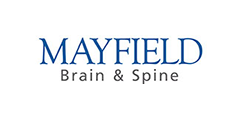Each heading slides to reveal information.
Questions to Ask Yourself
How do my priorities impact decision-making?
All treatments have benefits and consequences. You must make a choice that reflects your individual situation. Your work life, family life, or hobbies can influence what your priorities are for treatment. Your doctor will also consider your priorities from a medical aspect. One treatment does not fit all situations, and it is a matter of making the most appropriate match--one that you believe in.
Talk to your doctor about your expectations. For example, is hearing preservation possible? Consider whether your current hearing level is conducive for a hearing preservation treatment approach. Some patients may prioritize facial function or other factors, based on profession or lifestyle. You must be comfortable asking your doctors questions about how your priorities will be taken into consideration when choosing a treatment.
What are my expectations for post-treatment?
It is important to have reasonable expectations about acoustic neuroma side effects and your recovery after surgery or radiation treatment. It is important to ask questions about the procedure, immediate aftercare, and any longer-term care. Your doctor can explain what specialists are available for any post-treatment side effects, such as vestibular therapy, and whether he or she will coordinate any aftercare treatment with your home town physician (if you travel for treatment).
Managing your expectations about returning to work, or resuming other activities post-treatment is beneficial to your recovery. These are important subjects to broach with your doctors as well.
What is the best treatment option for me?
Sometimes, choosing a particular treatment is not a clear-cut choice, and it can be very difficult to make a decision. Depending on the size and location of your tumor, your hearing, age, general health and other factors, not all treatment options may be recommended. It is important to get more than one opinion about treatment, if possible. ANA provides downloadable lists of questions about surgery and radiation to bring to your doctor visit when you are considering treatment options.
Do I want tumor removal or growth arrested?
If removal is important to you, surgery is the only route, and you must then decide which surgical approach suits your situation best. On the other hand, radiation does not entail an invasive procedure, and if arresting the tumor's growth would be satisfactory, radiation may be an option. It is also important to ask your doctors about the potential for regrowth of the tumor with any given treatment, and what the follow-up treatment would be in that situation.
If I choose observation, when might I seek treatment?
If a patient chooses the observation/watch and wait option (generally reserved for smaller tumors), periodic imaging is required. Following initial diagnosis, a reasonable plan would be to get a new MRI scan in six months. If there is no growth, the next scan can be done one year later and then on an annual basis. If there are any new symptoms, your physician should be notified immediately. These changes could indicate that the tumor is growing more rapidly. By waiting, there is a risk you could lose part or all of your hearing in the involved ear. There are two significant potential pitfalls with observation. First, it is critical that patients are absolutely prepared to insure that they will follow-through with MRIs as planned. Second, it is necessary to review all MRIs over time, rather than comparing any new MRI only to the immediately preceding one. Tumors may grow slowly enough so that no significant change can be seen over the course of one 6 or 12 month period even though there is significant growth over years. If significant growth does occur during the observation period, active treatment is indicated and you and your physician may decide to choose between one of two therapies: radiation treatment or microsurgical resection.
Will my insurance cover treatment?
Check your insurance policy and make necessary phone calls to determine if the facility/physician is in or out of the network. Find out what the difference in individual responsibility (i.e., 10% or 20%) will be, depending on whether the facility is in or out of the network. According to your policy, what is the maximum out-of-pocket deductible that would be your responsibility during a calendar year? Find out what is considered reasonable and customary charges. Some centers will assist you with insurance coverage issues.
*The ANA recommends that patients research physicians and specialists, looking for multidisciplinary teams and providers with substantial experience treating acoustic neuroma. A multidisciplinary team may consist of neurosurgeons, neuro-otologists (i.e. ENT surgeons), therapeutic radiologist or other specialists. Some centers may have a care coordinator/patient navigator representative as part of the care team who acts as a point of contact to help patients navigate and coordinate their care.
Questions to Ask your Doctor
QUESTIONS FOR RADIATION TREATING MEDICAL PROFESSIONALS
Click to download and print a copy of these questions to bring to your appointment.
If you have opted for radiation treatment of your tumor, you may want to ask some of the following questions of your radiation therapist, neurosurgeon, or neurotologist. Be sure that you are comfortable with the responses:
- How many tumors have been treated with radiation at your center in the past year?
- Will this be a one-dose procedure, or will it consist of several smaller doses?
- What type of radiation treatment (e.g., Gamma Knife, LINAC, CyberKnife, Novalis, proton beam, etc.) do you perform? What are the advantages of this type of radiation over the others that are available?
- Why do you recommend this form of radiation treatment over others?
- Is the size of my tumor safe to treat with radiation?
- What are the long-term side effects of this treatment?
- What are the more serious complications such as malignancy, hydrocephalus and what are the relative frequencies?
- How many of your patients have experienced continued growth of their tumors following treatment? If this happens to me, what would be my best follow-up procedure? Can I have microsurgery, or can I repeat radiation treatment?
- After radiation treatment, may I go about my business as before treatment, or are there any special precautions I should take?
- When and how often should I schedule follow-up MRIs after treatment? Will I get these MRIs for the rest of my life?
QUESTIONS FOR THE ACOUSTIC NEUROMA SURGEON
Click to download and print a copy of these questions to bring to your appointment.
If you have decided to have your acoustic neuroma surgically removed, you may wish to ask some of the following questions of your surgeons. Be sure that you are comfortable with the responses:
- How many acoustic neuromas have you evaluated or managed this year and what specific training in acoustic neuromas have you had?
- How are most small and medium-sized tumors treated at your center? In the last year, approximately how many acoustic neuromas were treated with surgery and how many with radiation?
- What surgical approach do you recommend for my tumor size, location, age, health and level of hearing and why?
- For a tumor the size and shape of mine, what have been your results with respect to facial nerve function, both temporary and permanent?
- What is the likelihood that my remaining hearing will be preserved after this surgery? (This question mainly applies if you have a smaller tumor (<2cm) and useful hearing before surgery)
- Do you anticipate total tumor removal with a single operation? If not, what are my follow-up options?
- What has been your rate of surgical complications with respect to stroke, infection, bleeding, and cerebral spinal fluid (CSF) leak?
- When and how often should I schedule follow-up MRIs after treatment?
- Does your hospital have a neurological intensive care unit?
- About how many days will I be in the hospital?
- What follow-up care will I need?
QUESTIONS FOR THE AUDIOLOGIST
Click to download and print a copy of these questions to bring to your appointment.
If you have opted to explore hearing aids or devices, you may want to ask some of the following questions of your audiologist. The answers to many of these questions depend on the type and extent of your hearing loss and your circumstances, lifestyle and preferences, so that hearing rehabilitation can be individually tailored to you.
- What are your qualifications?
- What options do my hearing loss and ears allow for?
- Which hearing aid or device is best for my particular type of hearing loss and lifestyle? (The more information you give your audiologist about your daily activities and listening environments, the more helpful the audiologist can be in recommending the best hearing device for you.)
- What are my hearing aids or devices capable of? (Make a list of lifestyle elements that are important to you including exposure to noisy environments, how often you dine out, are around multiple people, have meetings at work, use the phone or want to use the phone, travel, have leisure time and more.)
- How much does the aid or device cost?
- What's the aftercare plan? How much help will I need?
- How long will it take to get used to my hearing aid/device?
- How will the hearing aid/device change my life?
- When can I wear my hearing aid/device?
- What type of maintenance/cleaning is required?
- If the device uses batteries, how often will I have to replace them and what is the average cost?
- Will I require other devices/apps? (Do I need a mobile app to control the features? Are they Bluetooth capable to take phone calls or watch TV?)
- What happens if they break of are damaged? (What happens should they become inoperable and what type of warranty is available?)
- If I purchase hearing aids/devices, will I have any additional costs? (Is the price of adjustments, repairs, batteries or check-ups included?)
- What is the return policy? (Is there a trial period and if so, are there any fees that apply?)
- How often do you need to check or adjust my hearing aids/device?
- How long will the aids/device last and how soon will I need to upgrade? (What possible updates may the hearing aids go through in the next one to three years? Are there any updates currently underway?)
- How do I care for the device to maximize performance and lifespan?
- What type of warranty is available?
- Does my insurance cover the cost? (If not, will the hearing center be able to find alternative sources of financial help?)
- Are there other techniques or communication skills that would be helpful for me?
QUESTIONS FOR PHYSICAL THERAPISTS
Click to download and print a copy of these questions to bring to your appointment.
- Are you qualified to treat vestibular problems? (confirm that the therapist is trained in vestibular rehabilitation)
- How does the vestibular system work?
- How is this type of physical therapy different from other types of physical therapy?
Pre-treatment or Observation Questions:
- How will physical therapy help me if I decide to have treatment later?
- How will physical therapy help me if I continue to observe my AN?
- How will each type of treatment affect my vestibular system?
Post-treatment Questions:
- If the tumor is gone, why am I dizzy and off balance?
- Is it normal to feel so dizzy after treatment?
- How long is it going to take for me to get better?
- Will I be able to return to work?
- Will I be able to go back to my previous activities?
- I had treatment many years ago, can this still help me?






























